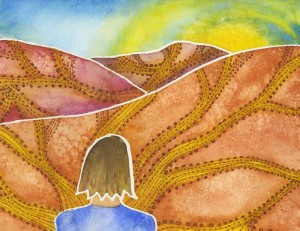It is not uncommon to hear glib statements about how the era of the job for life has passed.
And yet, people still routinely ask kids what they want to be when they grow up.
And we still talk about education as if you get educated in your youth, which prepares for The Job you’ll have as an adult. And by we I mean in casual conversation, media reporting, and government policy debates.
In selecting universities and area of study, we act as if it is possible to predict what the job market is going to look like in 5, 10, or 25 years and make our decisions accordingly.
And once we’ve graduated, we act as if we’ve been prepared for some specific type of job and if those jobs aren’t there that somehow we should have been advised differently, or the university shouldn’t have accepted so many students into their program, or we have otherwise been cheated.
That applies whether you only did a BA or whether you have a PhD under your belt.
We can’t predict the future
Written baldly, that probably seems obvious.
But just as a 6 year old has no idea what they’re going to be when they grow up, neither do you.
Friends who knew me 20 years ago are still somewhat amazed every time I posted something on Twitter about my pigs and chickens. Hell, I’m somewhat amazed. And I’m the one who made all the decisions that led me from there to here.
And now, 8 years later, I no longer have pigs and chickens and have moved back to England. I didn’t predict that one either.
You don’t need to predict the future to make good decisions
Remember this image?

This is where you are standing. You can sort of see the immediate future, though a wild animal could spring out of those woods unexpectedly. But around that second corner? Who knows.
The image you’d really like is more like this one:

You know you are faced with myriad choices right in front of you and you’d like to zoom out so you can see where each one will lead.
The trouble is, that we don’t have an accurate map for that.
What you will notice about that image, though, is that many of those paths curve and merge and criss-cross each other.
How do you make decisions, then?
If you can’t predict the future, how can you make the best decisions now?
First, you have to give up any idea you have of the perfect decision. There are better and worse decisions, to be sure, but you can’t regret a good decision because maybe there was a better one. You can’t know that. Ever.
Second, you have to accept that every decision involves loss. The loss of what might have been. The roads not taken.
Loss is unavoidable. It is perfectly acceptable to grieve that loss. And go in the direction you have chosen.
Third, you need to trust yourself. Trust that you can make good decisions. And that you will make good decisions in the future.
The upside of everything changing and not being able to predict the future is that if a decision turns out not to have been as good as you thought, you can take a new decision and change course. Very few roads are genuine dead ends.
Valuing the present
One of the problems is that we see childhood (and education is so strongly associated with childhood that this seems to apply to all education and even early career choices) in developmental terms.*
We rarely ask about the value right now of whatever activity a child is engaged in. We look at those activities almost exclusively in relation to the future.
If you can’t predict the future, and your activities are only valued in relation to that future… well, you can see how that isn’t leading anywhere good.
Valuing the present is a good way to start. Don’t dismiss all the future possibilities of a particular choice, possibility is also important. But your decisions should also have value now.
*I’m influenced here by Barrie Thorne’s piece on the sociology of childhood, which was in turn influenced by Tamara Hareven’s thoughts on different kinds of time.
There is no ‘there’
By valuing the present you are also taking the pressure off getting there.
There is no there to get to.
At the same time, you are already there.
Which sounds a bit more philosophical than I would like to think I am. But it seems to me that that’s what you’re left with when you get rid of the image of being “grown up”.
Related Posts:
You don’t have to decide what to do with your life (a later variation on this theme)
The importance of your vision because there is value in having some idea of where you’d like to go
What an academic career looks like
Are you letting fear drive your decisions?
Edited 25 October 2018. Links repaired and removed reference to Twitter which I am no longer on, July 2025.









I really needed to read this today. Especially –
“Trust that you can make good decisions. And that you will make good decisions in the future.”
Whenever I get an outcome I dislike, I ask, “Whyyyy do I make bad decisions?” Its so silly, whether I am solely responsible for the outcome or there are a lot of external factors contributing, I seem to think that I have clairvoyance and it all could have been prevented if I had just decided the “right” thing.
I love this post – its like an extended explanation of the serenity prayer.
.-= Megan ´s last blog ..The Case of the Gimmies =-.